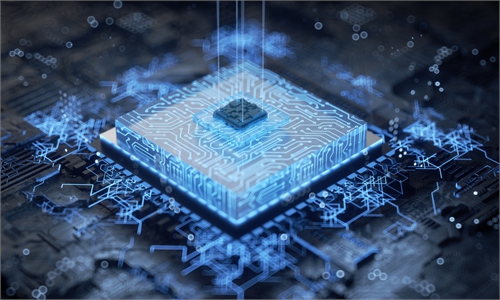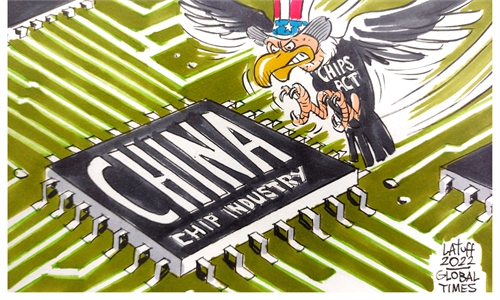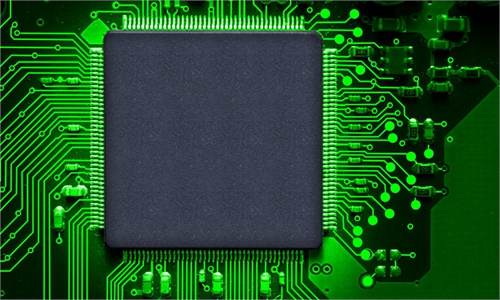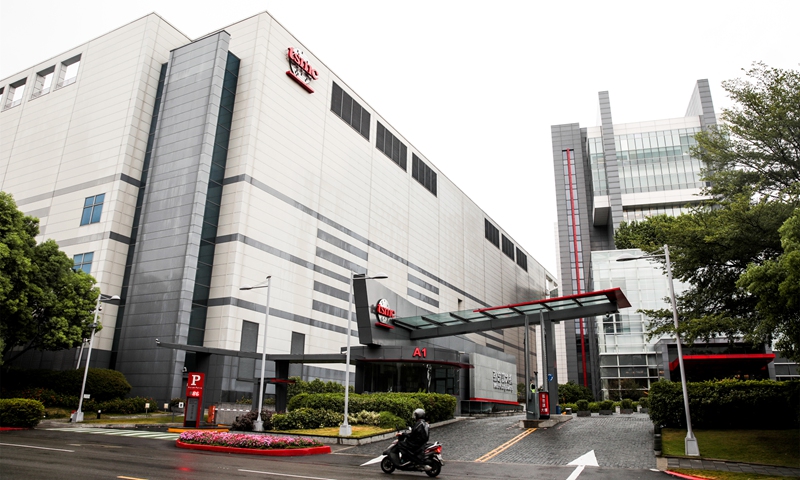
A motorcyclist passes the Taiwan Semiconductor Manufacturing Co (TSMC) headquarters in Hsinchu, Taiwan Province, on July 28, 2020. Photo: VCG
Speaker of the US House of Representatives Nancy Pelosi, who has been embroiled in a scandal over her husband's purchase of chip stocks ahead of the passage of a chip-support bill by the US Congress, reportedly met with the chairman of Taiwan Semiconductor Manufacturing Co (TSMC) on Wednesday during her trip to the island of Taiwan, which has been blasted as a blatant provocation against China.
As Pelosi faces harsh criticism and accusations of her family cashing in on insider knowledge of the US' recently passed CHIPS and Science Act, the meeting with the head of the world's largest chipmaker simply served as a photo-op designed to show her efforts to push forward the legislation, and it will not have any concrete outcome given TSMC's difficult position, industry analysts noted.
During the meeting, Pelosi and TSMC Chairman Liu Deyin discussed the so-called CHIPS and Science Act, which offers $52 billion to support chip manufacturing in the US, according to a report by Fortune on Wednesday.
Details of further discussions held during the meeting are sketchy, but the Fortune report noted that Pelosi met with the TSMC chairman because the company is the world's most valuable semiconductor manufacturer, which will likely be a beneficiary of the US legislation, because of the company's plan for a $12 billion chip factory in the US state of Arizona.
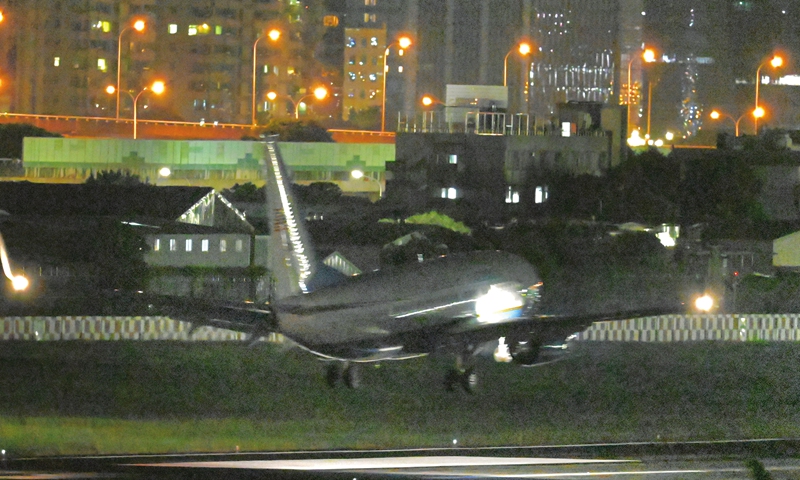
A US military aircraft with US House Speaker Nancy Pelosi on board prepares to land at Songshan Airport in Taipei, the Taiwan island, on August 2, 2022. Pelosi landed in the island on the evening that day. Photo: AFP
The meeting may appear to be aimed at shoring up the US-led chip alliance and tightening the encirclement of the technology industry on the Chinese mainland, but it is more of a political show, Zhang Xiaorong, director of the Beijing-based Cutting-Edge Technology Research Institute, told the Global Times on Wednesday.
Zhang said that Pelosi's move may also be an attempt to distract Americans from the scandal engulfing her and her husband.
In mid-July, several US media outlets reported that Pelosi's husband, Paul Pelosi, made a purchase of between $1 million and $5 million of the shares of semiconductor giant Nvidia, just weeks before the US Congress was set to pass the CHIPS act, which offers a massive subsidy to the industry.
The reports set off a storm of criticism directed at Pelosi, with some accusing her family of cashing in on her job as House speaker. Pelosi's husband later sold the shares, but the criticism continued to follow her as she made the widely criticized trip to the island of Taiwan.
Pelosi's meeting with the TSMC chairman would not help attract more investment from the chipmaker or accelerate its plan for the Arizona factory; instead, the meeting could put the company in a more difficult position, according to Ma Jihua, a veteran industry analyst.
The company has been taking its time to complete the Arizona facility, possibly because it sensed ominous uncertainty in its US venture, Ma told the Global Times on Wednesday, noting that the company is in an impossible position. "If a semiconductor manufacturing company makes a wrong bet, its existence is in peril," Ma said.
Zhang also said that Pelosi's visit "posed huge pressure on TSMC, which on one hand has to kneel down to the US, and on the other hand is reluctant to give up the mainland market."
In 2021, the Chinese mainland imported $432.55 billion worth of integrated circuits, of which 36 percent came from the island of Taiwan, customs figures showed.
